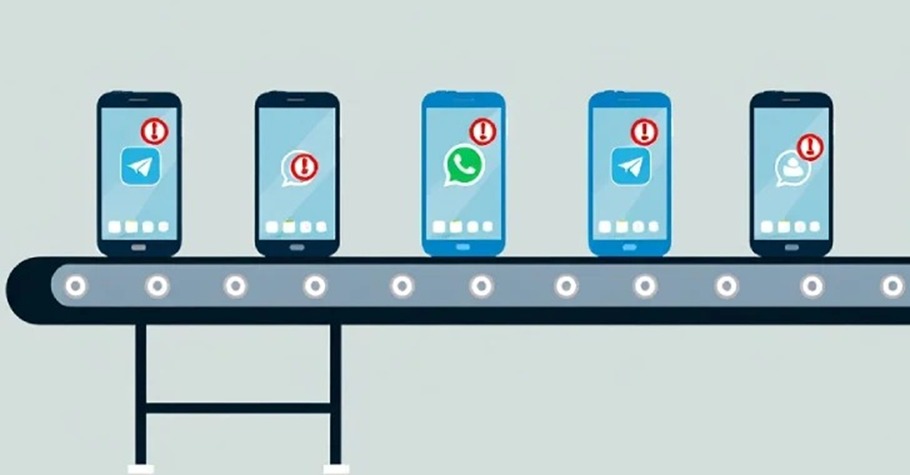Gone are the days when buying fake designer bags meant a shady alley in a big city. In 2025, counterfeit fashion has gone digital—and it’s thriving in private WhatsApp groups and Telegram channels. These underground networks are rebranding fraud as “replica culture,” offering so-called "mirror quality" designer items directly to consumers, all with the tap of a phone screen.
While fashion lovers think they’re scoring high-end goods for less, what they’re actually funding is a sprawling web of fashion fraud, identity theft, and international crime.
1. The Rise of Encrypted Fashion Fraud
Unlike Instagram scams that rely on flashy visibility, WhatsApp and Telegram counterfeit rings operate in secrecy. Sellers create invite-only channels or private group chats filled with catalogs of fake Louis Vuitton, Chanel, Balenciaga, and more. Customers are promised “1:1” quality replicas—an industry term implying indistinguishable copies from the originals.
But these chat apps do more than offer shady shopping—they provide cover. Encrypted messages mean these transactions are harder to trace, and because the groups are private, reporting them is far more difficult. It’s a digital black market hiding in plain sight.
2. Payment Scams and No Delivery
One of the biggest issues? The goods often don’t arrive. Scammers lure people into paying hundreds of dollars for replicas, promising express international shipping. Some customers receive a completely different item—usually of cheap, laughable quality. Others receive nothing at all. Once the payment clears—often via wire transfer, crypto, or sketchy payment gateways—the seller vanishes, blocks the buyer, and reappears under a new name in another group.
These scams are particularly insidious because there's rarely a way to get your money back. Unlike traditional e-commerce sites, there’s no return policy, no buyer protection, and no one to contact when the product is a bust.
3. Fake Authentication and “Luxury Consultants”
To add legitimacy, these counterfeit networks now employ self-proclaimed "luxury consultants" or "fashion advisors." They act as middlemen, pretending to help clients choose the right item or size. They may even offer fake authentication papers and receipts from designer stores to convince buyers that they’re getting a genuine product.
Some groups go even further, claiming their goods come from “factory overruns” or “excess stock” from designer brands, subtly shifting the narrative from criminal to clever bargain. But make no mistake—these aren’t industry secrets. They’re full-blown counterfeit operations hiding behind a curated lie.
4. The Influence of Social Proof
These Telegram and WhatsApp groups thrive on social proof. Buyers are encouraged to post unboxing videos and reviews. Scammers curate fake customer testimonials and staged photos to build trust. And since people trust private recommendations more than ads, these faux social circles feel safe—until they aren’t.
In many cases, the groups are fronts for identity theft. Users who send personal details, like shipping addresses or phone numbers, may find themselves victims of spam, phishing, or worse.
5. How to Stay Safe
- Avoid Private Shopping Groups: No reputable brand sells through WhatsApp or Telegram. Period.
- Watch for Red Flags: Low prices on luxury items, insistence on crypto payments, and no returns are all signals.
- Stick to Trusted Retailers: Use platforms with verified authentication and buyer protection.
- Do Not Share Personal Info: Your address and payment info shouldn’t be handed over in a group chat.
- Report and Exit: If you’re added to a suspicious fashion group, report it and leave immediately.
Conclusion
The digital age has brought fashion to our fingertips—but it’s also brought fraud closer than ever. With WhatsApp and Telegram, counterfeit culture is becoming harder to detect and easier to fall for. As fashion lovers chase the thrill of luxury for less, they’re increasingly stepping into traps laid by global scam networks. What feels like a good deal today might be a fashion nightmare tomorrow. Stay smart, stay skeptical, and remember: no Gucci bag is worth losing your wallet—or your identity.

